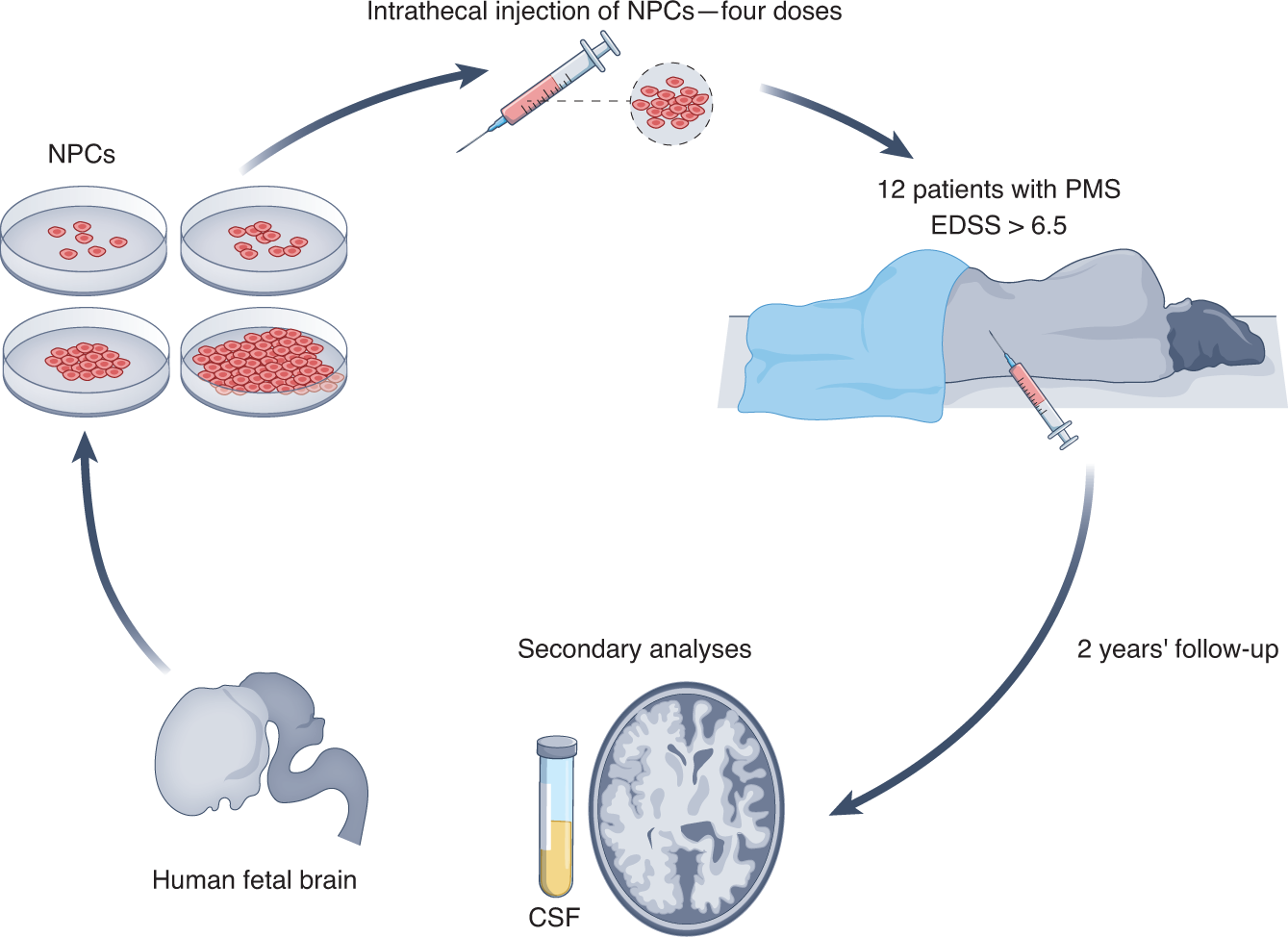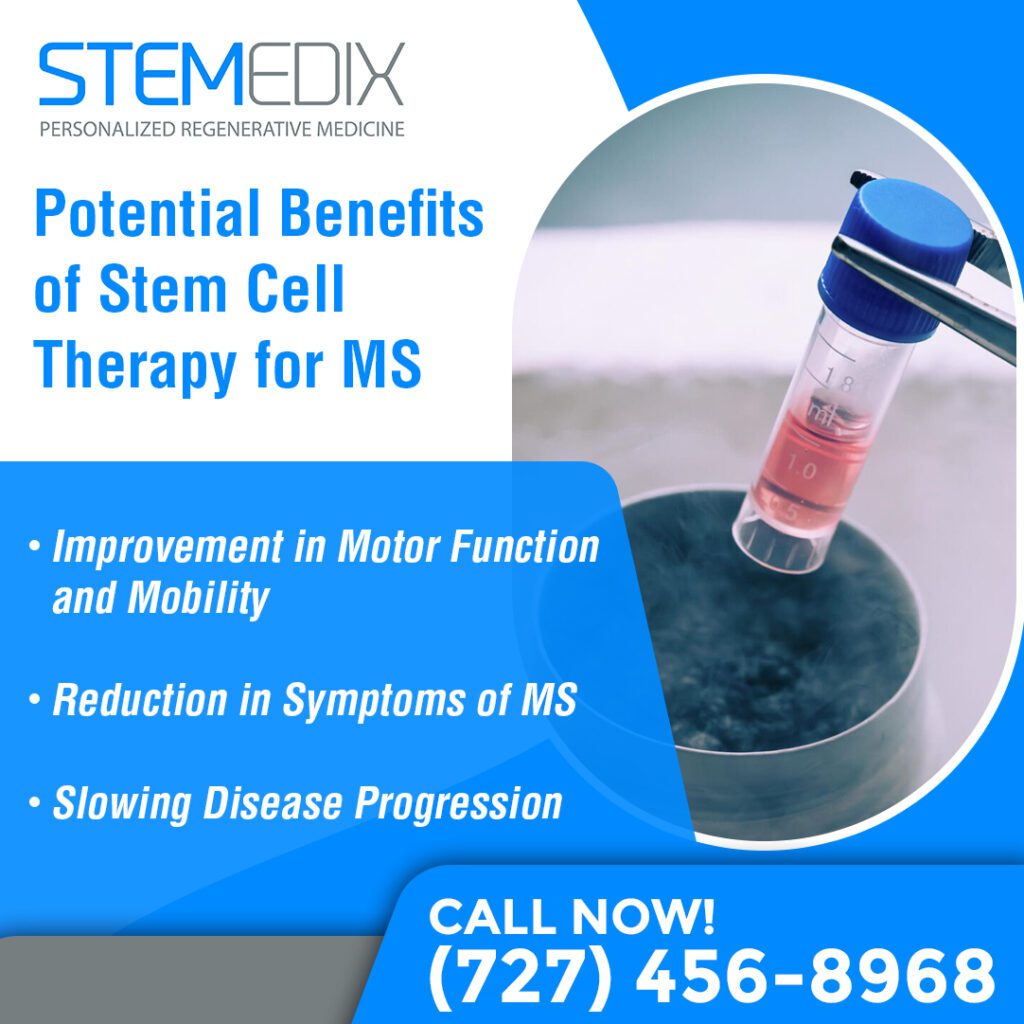Fascination About Regenerative Medicine For Multiple Sclerosis
Wiki Article
The Facts About Regenerative Medicine For Multiple Sclerosis Revealed
Table of ContentsThe 4-Minute Rule for Regenerative Medicine For Multiple SclerosisGetting The Regenerative Medicine For Multiple Sclerosis To WorkHow Regenerative Medicine For Multiple Sclerosis can Save You Time, Stress, and Money.The Single Strategy To Use For Regenerative Medicine For Multiple SclerosisRegenerative Medicine For Multiple Sclerosis - TruthsA Biased View of Regenerative Medicine For Multiple SclerosisThe Ultimate Guide To Regenerative Medicine For Multiple Sclerosis
The mesenchymal stem cells hair transplanted throughout stem cell therapy can separate and develop to create new cells that can fill in the damaged cells of the worried cells. This may restore neurological features in patients with this condition. These benefits of stem cell therapy are more sustained by the capability of MSCs to promote healing.Clients with several sclerosis are usually treated with mesenchymal stem cells. These are multipotent stem cells that have the capacity to differentiate and develop to form a variety of cell enters the body. As soon as transplanted, these stem cells can create to develop healthy afferent neuron hence sustaining the regrowth of the broken cells of the nervous system.
When hair transplanted, the stem cells move to locations of inflammation or damages within the main nerves (CNS). They are naturally brought in to the sites of injury where the immune system is attacking the myelin sheath, the safety covering of nerve fibers. The stem cells work by promoting the repair service and regeneration of damaged myelin, possibly recovering feature to impacted afferent neuron.
The 25-Second Trick For Regenerative Medicine For Multiple Sclerosis
Stem Cell Study on MS The National Several Sclerosis Culture, together with other organizations, is proactively funding and supporting research right into mesenchymal stem cell therapy for several sclerosis to discover their potential and boost treatment methods. The goal is to develop much safer and much more efficient ways to make use of stem cells in treating MS.
Here are evaluations from people of the Swiss Medica clinic. The patient took a trip from England looking for remedy for his MS signs, a problem he has fought given that 2006. Over the years, he has battled with exhaustion, wheelchair concerns, and problems with his bladder and bowel, all coming from nerve damages.
His treatment experience was smooth. He likewise appreciated that his traveling, holiday accommodations, and vegan dietary preferences were thoughtfully organized. "The clinical team were impressive, particularly the physician. Everything was clearly described, and they were thorough in their checks. I would absolutely recommend this place." The individual took a trip from Romania seeking therapy for MS after listening to favorable responses about stem cell treatment for the disease.
Get a cost-free online consultation to discover exactly how stem cells will certainly function for your instance, and what are the period and cost of the treatment. Uccelli, A., Laroni, A., Brundin, L., Clanet, M., Fernandez, O., Nabavi, S. M. Regenerative Medicine for Multiple Sclerosis., Muraro, P. A., Oliveri, R. S., Radue, E. W., Sellner, J., Soelberg Sorensen, P., Sormani, M. P., Wuerfel, J. T., Battaglia, M
Stem cells are cells in the body that can mature into grow cells that serve a specific functionParticular There are 2 main types of stem cells: beginning stem cells and grown-up stem cells.
are located in some adult cells and body organs consisting of the bone marrow, skin, blood, and mind. Adult stem cells are not as flexible as beginning stem cells and are consequently more restricted in terms of the kinds of cells they mature into. The distinct buildings of stem cells supply promise for new therapies that can slow/halt MS condition task and fixing tissue damages in the central nerve system.
What Does Regenerative Medicine For Multiple Sclerosis Do?

The procedure entails accumulating stem cells from an individual's own (autologous) bone marrow. The person is then treated with radiation treatment to deplete the body immune system and stem cells are reintroduced into the body where they grow into brand-new, healthy immune cells - Regenerative Medicine for Multiple Sclerosis. Stem click for info cells can be injected right into the body in different means

In 2000, the MS Society of Canada and MS Scientific Study Foundation moneyed a scientific test including HSC transplants, led by Drs. Mark Freedman and Harry Atkins from the Ottawa Hospital Research Study Institute/University of Ottawa. The aHSC treatment offered in Canada is a therapy that makes use of high-dose radiation treatment, also called conditioning.

Regenerative Medicine For Multiple Sclerosis Things To Know Before You Get This
Neural stem cells (NSC) are discovered in the mind and can develop right into numerous sorts of mind cells including nerve cells, oligodendrocytes, and astrocytes. NSCs might serve to repair or secure the brain and modulate the body immune system. Early medical tests in non-human primates demonstrated that treatment with NSCs benefitted the progression of MS-like disease in pet versions.The arise from these safety and security studies are positive for future stem cell and regenerative medicine therapies in MS. Future scientific trials (phase 2 and 3) with larger numbers of participants and controls are required to assess the efficacy of this therapy for MS. As demonstrated by the examples above, there is a large selection of research occurring that will supply extra solutions concerning making use of stem cells to treat MS.
Stem cell treatment is considered risk-free, yet, like any clinical treatment, it carries some risks, such as short-lived swelling or pain at the injection site. However, serious side results are rare when performed by certified specialists.
How Regenerative Medicine For Multiple Sclerosis can Save You Time, Stress, and Money.
Multiple sclerosis (MS) is a persistent disease of the main nerves that impacts the mind and spine cable. It is characterized by the destruction of myelin, a material that covers nerve fibers, resulting in disturbances in communication between the mind et cetera click for source of the body. Signs and symptoms can differ widely and include muscle weakness, vision problems, imbalance, and fatigue.Several sclerosis is characterized by the body immune system erroneously assaulting the protective sheath (myelin) that covers nerve fibers, causing interaction concerns between the mind and the rest of the body. The disease can lead to the deterioration or permanent damage of nerves. Symptoms vary widely among patients and can consist of fatigue, flexibility concerns, pain, and cognitive changes.
Report this wiki page